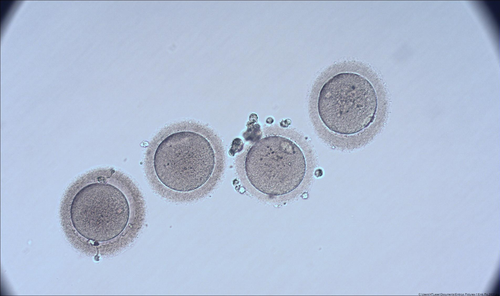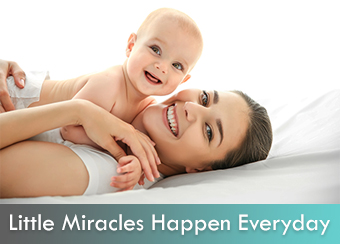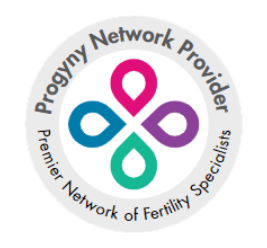Last month, Dr. Murray was a guest writer for Freeze , a progressive company that helps women simplify their egg freezing options while saving them time and money. NCFMC is a verified Freeze clinic and has some of the best pricing in Northern California for fertility preservation.
Do I Have Enough Eggs to Freeze?
When it comes to giving an estimate on the number of viable, “good-quality” eggs left in someone’s ovaries, there are two important elements: egg quantity and egg quality. We measure egg quantity with a blood test and ultrasound. For egg quality, there is no test, but our best estimate comes from the age at which a woman freezes her eggs.
Egg Quantity: How Many Eggs are Left?
Egg quantity testing is important for all women considering egg freezing. Since no single test is perfect, we recommend gathering as much information as possible by obtaining both (1) an AMH blood test and (2) an antral follicle count (done by ultrasound).
1. Anti-Mullerian Hormone (AMH) blood test – higher is better. An AMH level is one of the important blood tests for egg quantity. AMH is a hormone produced by cells that surround the eggs, called granulosa cells. The more eggs you have in your ovaries, the more AMH producing cells you have, which results in a higher level of AMH in your blood. Thus, an AMH test is used to check the potential number of eggs you have left in your ovaries and help predict how many eggs can be retrieved per attempt. Younger women with an AMH > 2 ng/mL may not necessarily need to rush into egg freezing. The AMH test is convenient because it can be done on any day of your menstrual cycle.
-
AMH > 2 ng/mL is Good
-
AMH = 1 – 2 ng/mL is OK
-
AMH = 0.3 – 1 ng/mL is Concerning (your biological clock is ticking fast)
- AMH < 0.3 ng/mL is Poor and means there are very few eggs remaining (it may be too late)
2. Antral Follicle Count (AFC) ultrasound – higher is better. We always include an AFC as part of the first visit evaluation because it is a crucial piece of information for any woman considering egg freezing. The doctor will perform a vaginal ultrasound (using a wand that is inserted into your vagina, as opposed to the type that is used over your belly) to count the number of antral, or primordial (“sleeping”) follicles in both ovaries. Each antral follicle represents a potential egg. A high count indicates a better chance of producing more eggs available for freezing. An antral follicle count can be done at any point in your menstrual cycle. An AFC over 20 is excellent. However, for women over 38, we will want at least 30 eggs total (due to lower egg quality with an increase in age), which means many women 38 years and older may need to do an egg freezing cycle more than once. (It’s extremely rare to get 30 eggs from one cycle.)
Egg Quality: Can Those Eggs Make a Healthy Baby?
Unfortunately, at this point in time, there is no good way to test for egg quality. However, your body is pretty amazing. Although not perfect, your body has the ability to recognize when an egg is abnormal and will not produce a healthy baby, but this occurs after you decide to thaw and fertilize your eggs. Poor egg quality is often the result of chromosome or DNA abnormalities. If the egg has a defect, your body will usually recognize a problem and will either prevent fertilization/conception altogether, or if the abnormal egg fertilizes and does attach to the uterus your body will trigger a miscarriage. This is why, while the rate of babies born with birth defects does go up for older women – the result of poor egg quality – babies born with birth defects are still very uncommon. There are actually tests for embryo quality (after the sperm fertilizes the egg) with a test called Preimplantation Genetic Testing (PGT).
However, since most egg freezers don’t want to make embryos yet with their eggs, it’s not possible to test for egg quality at the time a woman is freezing. Our best guess at egg quality is actually based on the age of the woman at the time she froze her eggs, and it isn’t influenced by your other fertility testing (like your AMH or AFC). This is why most doctors recommend that the older a woman gets, the more eggs she will need to freeze in order to make a healthy baby.
You can find the original post on the Freeze website.





